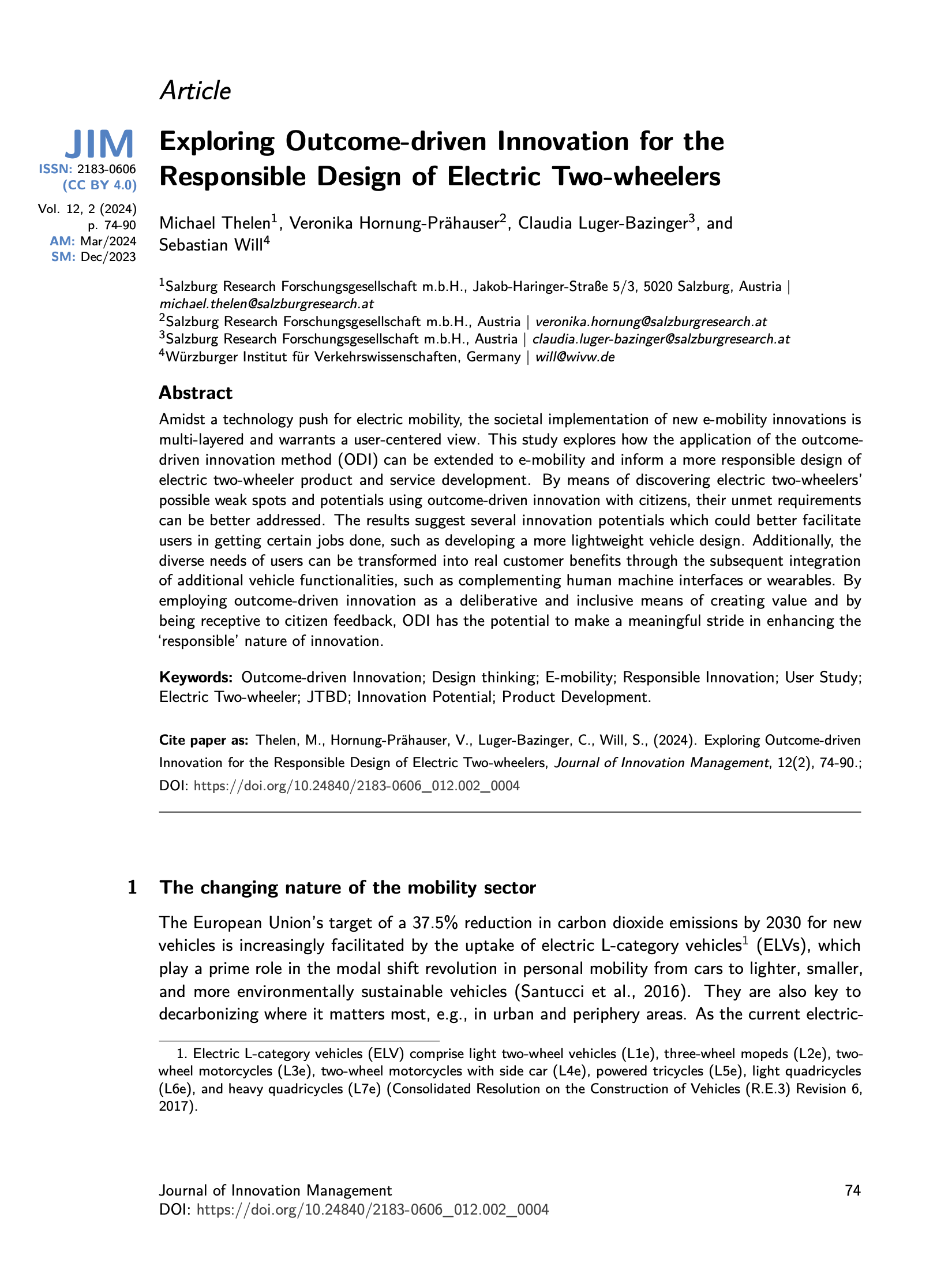Exploring Outcome-driven Innovation for the Responsible Design of Electric Two-wheelers
Main Article Content
Abstract
Amidst a technology push for electric mobility, the societal implementation of new e-mobility innovations is multi-layered and warrants a user-centered view. This study explores how the application of the outcome-driven innovation method (ODI) can be extended to e-mobility and inform a more responsible design of electric two-wheeler product and service development. By means of discovering electric two-wheelers’ possible weak spots and potentials using outcome-driven innovation with citizens, their unmet requirements can be better addressed. The results suggest several innovation potentials which could better facilitate users in getting certain jobs done, such as developing a more lightweight vehicle design. Additionally, the diverse needs of users can be transformed into real customer benefits through the subsequent integration of additional vehicle functionalities, such as complementing human machine interfaces or wearables. By employing outcome-driven innovation as a deliberative and inclusive means of creating value and by being receptive to citizen feedback, ODI has the potential to make a meaningful stride in enhancing the ‘responsible’ nature of innovation.
Article Details
Authors who publish with this journal agree to the following terms:
- Authors retain copyright and grant the journal right of first publication with the work simultaneously licensed under a Creative Commons Attribution License that allows others to share the work with an acknowledgement of the work's authorship and initial publication in this journal.
- Authors are able to enter into separate, additional contractual arrangements for the non-exclusive distribution of the journal's published version of the work (e.g., post it to an institutional repository or publish it in a book), with an acknowledgement of its initial publication in this journal.
- Authors are permitted and encouraged to post their work online (e.g., in institutional repositories or on their website) prior to and during the submission process, as it can lead to productive exchanges, as well as earlier and greater citation of published work (See The Effect of Open Access).

